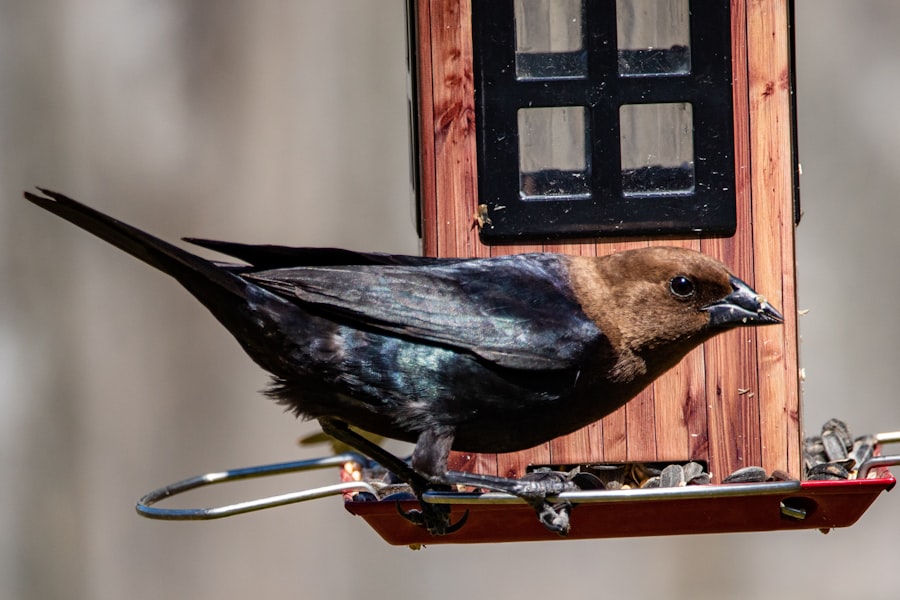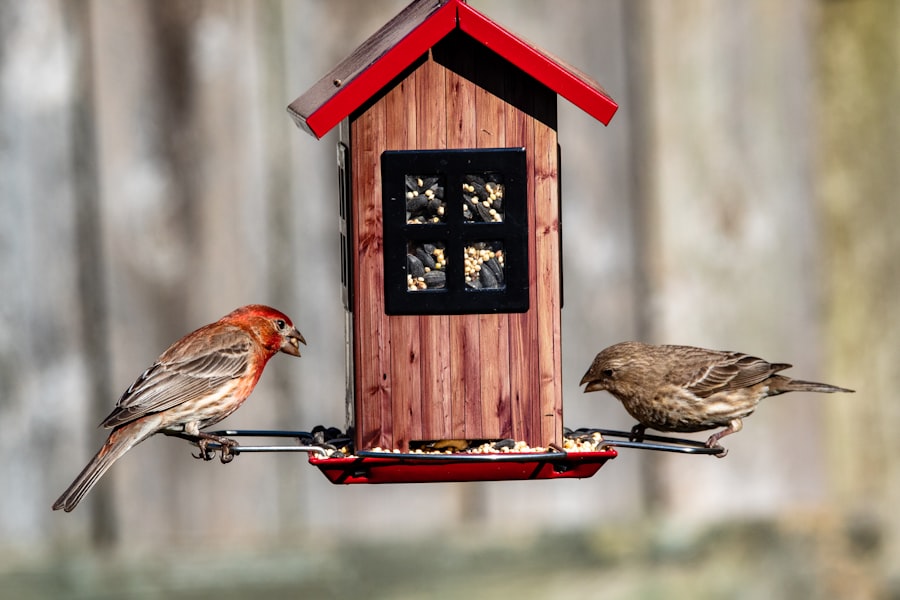Determining the optimal number of chickens to keep requires consideration of several key factors. Space availability is crucial, as chickens need adequate room for movement, foraging, and natural behaviors. The purpose of chicken-keeping, whether for egg production, meat, or both, also influences the ideal flock size.
Time and effort required for daily care is another important consideration. Chicken maintenance includes feeding, watering, coop cleaning, and egg collection. A larger flock demands more time and resources.
Financial aspects should also be evaluated, including costs for feed, bedding, and potential veterinary care. Assessing these factors – space, purpose, time commitment, and budget – allows for a well-informed decision on flock size. This approach ensures a manageable and sustainable chicken-keeping experience tailored to individual circumstances and goals.
Table of Contents
- 1 Benefits of keeping a small flock of chickens
- 2 Challenges of keeping a large flock of chickens
- 3 How to calculate the space requirements for chickens
- 4 Tips for managing the care and maintenance of a chicken flock
- 5 The impact of flock size on egg production and overall health of the chickens
- 6 Finding the right balance: determining the ideal number of chickens for your specific needs and resources
- 7 FAQs
Key Takeaways
- Consider available space, local regulations, and your ability to care for the chickens when determining the ideal number to keep
- Small flocks are easier to manage, require less space, and can provide enough eggs for a small family
- Large flocks require more space, can be more challenging to manage, and may lead to increased competition and aggression among the chickens
- Calculate at least 2-3 square feet of space per chicken in the coop and 8-10 square feet per chicken in the outdoor run
- Regularly monitor the health of the flock, provide proper nutrition, and keep the coop clean to ensure the well-being of the chickens
- Larger flocks may produce more eggs initially, but overcrowding can lead to stress and decreased egg production over time
- Consider your available resources, time, and goals to find the right balance and determine the ideal number of chickens for your specific needs
Benefits of keeping a small flock of chickens
Fresh Eggs and Cost-Effective Living
One of the primary advantages of keeping chickens is having a steady supply of fresh, nutritious eggs for daily consumption. Even a small flock can provide a consistent flow of eggs, making it a cost-effective way to access high-quality eggs without relying on store-bought options.
Educational Opportunities and Responsibility
Raising chickens can be a great educational experience for children, teaching them valuable lessons about responsibility and animal care. It also provides an opportunity for them to learn about the food production process, from egg to table.
Natural Pest Control and Organic Fertilizer
Chickens can also contribute to a healthier, more sustainable environment. As natural foragers, they will happily eat insects, grubs, and other pests that can damage plants or crops, reducing the need for chemical pesticides. Additionally, chicken manure is rich in nutrients and can be used as organic fertilizer to improve soil quality and promote healthy plant growth.
In summary, keeping a small flock of chickens offers a range of benefits, from fresh eggs and educational opportunities to natural pest control and organic fertilizer. These advantages make keeping chickens a rewarding and sustainable choice for many individuals and families.
Challenges of keeping a large flock of chickens

While there are many benefits to keeping chickens, there are also challenges that come with maintaining a large flock. One of the primary challenges is the amount of space required. A large flock of chickens will need a significant amount of space to roam and forage in order to stay healthy and happy.
This means that you will need a larger coop and outdoor area, which can be difficult to accommodate for some people. Additionally, a large flock will require more food and water, which can increase the cost and effort involved in caring for them. Another challenge of keeping a large flock of chickens is the potential for disease and health issues.
The more chickens you have, the greater the risk of disease spreading throughout the flock. This means that you will need to be vigilant about monitoring the health of your chickens and taking steps to prevent illness and infection. Additionally, a large flock can produce a significant amount of waste, which can create sanitation issues if not managed properly.
This means that you will need to dedicate more time and effort to cleaning and maintaining the coop and outdoor area. In conclusion, while keeping a large flock of chickens can be rewarding, it also comes with challenges such as the need for more space, increased risk of disease, and greater maintenance requirements. It’s important to carefully consider these challenges before deciding on the size of your flock.
How to calculate the space requirements for chickens
Calculating the space requirements for chickens is an important step in ensuring that your flock has enough room to live comfortably and thrive. The general rule of thumb is to provide at least 2-3 square feet of coop space per chicken, with an additional 8-10 square feet of outdoor space per chicken. This means that if you have 6 chickens, you will need a coop that is at least 12-18 square feet in size, with an outdoor area that is at least 48-60 square feet in size.
It’s important to remember that these are minimum requirements, and providing more space is always better for the well-being of your flock. When calculating space requirements, it’s also important to consider the breed of chicken you have. Some breeds are more active and require more space to roam, while others are more docile and can tolerate smaller living quarters.
Additionally, if you plan to keep roosters with your hens, you will need to provide extra space to accommodate their territorial behavior. It’s also important to consider the layout and design of your coop and outdoor area. Providing ample roosting space, nesting boxes, and areas for dust bathing will help ensure that your chickens have everything they need to live comfortably.
In summary, calculating the space requirements for chickens involves providing at least 2-3 square feet of coop space per chicken, with an additional 8-10 square feet of outdoor space per chicken. It’s important to consider the breed of chicken, the presence of roosters, and the layout and design of the coop when determining space requirements.
Tips for managing the care and maintenance of a chicken flock
Managing the care and maintenance of a chicken flock requires dedication and attention to detail. One important aspect of care is providing a balanced diet for your chickens. This includes offering a high-quality commercial feed as well as access to fresh water at all times.
Additionally, providing access to grit and oyster shells will help ensure that your chickens have everything they need for proper digestion and egg production. It’s also important to regularly clean the coop and outdoor area to prevent disease and maintain a healthy living environment for your flock. Another important aspect of managing a chicken flock is monitoring their health on a regular basis.
This includes checking for signs of illness or injury, as well as observing their behavior and egg production. If you notice any changes or concerns, it’s important to seek veterinary care as soon as possible. Additionally, providing regular opportunities for exercise and enrichment, such as allowing your chickens to free-range or providing toys and treats, will help keep them happy and healthy.
In conclusion, managing the care and maintenance of a chicken flock involves providing a balanced diet, regular cleaning and maintenance, monitoring their health, and providing opportunities for exercise and enrichment. By following these tips, you can ensure that your flock remains healthy and happy.
The impact of flock size on egg production and overall health of the chickens

The size of your chicken flock plays a significant role in egg production and the overall health of your chickens. Smaller flocks tend to have higher egg production per chicken compared to larger flocks. This is because smaller flocks are less likely to experience social stress or competition for resources, which can negatively impact egg laying.
Health and Nutrition Management
Smaller flocks are easier to monitor and manage in terms of health and nutrition, leading to better overall egg production. With a smaller flock, it’s easier to ensure each chicken receives the necessary care and attention, reducing the risk of health issues.
Disease Prevention and Overall Well-being
The size of your flock also impacts the overall health and well-being of your chickens. Smaller flocks are less likely to experience disease outbreaks or health issues compared to larger flocks. This is because smaller flocks are easier to monitor and manage in terms of sanitation and disease prevention, reducing the risk of aggression, territorial behavior, and stress-related health issues.
In summary, the size of your chicken flock can significantly impact egg production and overall health. Smaller flocks tend to have higher egg production per chicken and are less likely to experience disease outbreaks or health issues compared to larger flocks.
Finding the right balance: determining the ideal number of chickens for your specific needs and resources
Finding the right balance when determining the ideal number of chickens for your specific needs and resources is crucial for maintaining a healthy and sustainable flock. It’s important to carefully consider factors such as available space, purpose of keeping chickens, time and effort required for care, budget and resources, as well as personal preferences when deciding on the size of your flock. One way to find the right balance is by starting small and gradually expanding your flock as you gain experience and confidence in managing chickens.
This allows you to learn about their care requirements and assess how much time and effort you are willing and able to dedicate before committing to a larger flock size. Additionally, seeking advice from experienced chicken keepers or joining local poultry clubs or forums can provide valuable insights into managing different flock sizes. It’s also important to be realistic about your capabilities when determining the ideal number of chickens for your specific needs and resources.
While it may be tempting to have a large flock, it’s crucial to ensure that you have enough time, space, and resources to care for them properly. By finding the right balance between your needs and resources, you can create a sustainable and rewarding experience with your chicken flock. In conclusion, finding the right balance when determining the ideal number of chickens involves carefully considering factors such as available space, purpose of keeping chickens, time and effort required for care, budget and resources, as well as personal preferences.
By starting small, seeking advice from experienced chicken keepers, and being realistic about your capabilities, you can find the ideal number of chickens for your specific needs and resources.
If you’re considering how many chickens to keep, you may also be interested in learning about the ideal design for a chicken coop and run. Poultry Wizard offers a helpful article on chicken coop run plans to ensure your feathered friends have a comfortable and safe living space. Additionally, you can also find information on how to insulate a chicken coop to keep your flock warm during colder months in their article how to insulate a chicken coop.
FAQs
What is the ideal number of chickens to keep?
The ideal number of chickens to keep can vary depending on factors such as available space, local regulations, and the purpose of keeping chickens (e.g. eggs, meat, pets).
How much space do chickens need?
Chickens need at least 2-3 square feet of space per bird in the coop, and 8-10 square feet of space per bird in the outdoor run.
What are the benefits of keeping chickens?
Keeping chickens can provide a sustainable source of fresh eggs, natural pest control in the garden, and a source of organic fertilizer for the garden.
What are some considerations when deciding how many chickens to keep?
Considerations when deciding how many chickens to keep include local regulations, available space, the amount of time and resources available for care, and the desired purpose of keeping chickens.
What are some common challenges of keeping chickens?
Common challenges of keeping chickens include predator attacks, disease management, and maintaining a clean and healthy living environment for the birds.
Meet Walter, the feathered-friend fanatic of Florida! Nestled in the sunshine state, Walter struts through life with his feathered companions, clucking his way to happiness. With a coop that’s fancier than a five-star hotel, he’s the Don Juan of the chicken world. When he’s not teaching his hens to do the cha-cha, you’ll find him in a heated debate with his prized rooster, Sir Clucks-a-Lot. Walter’s poultry passion is no yolk; he’s the sunny-side-up guy you never knew you needed in your flock of friends!







